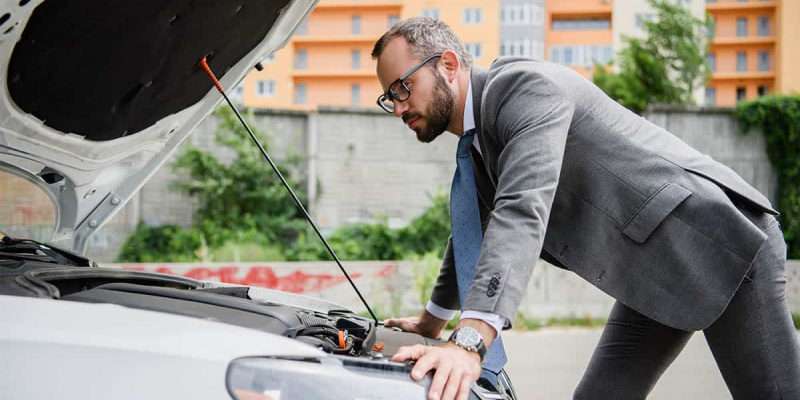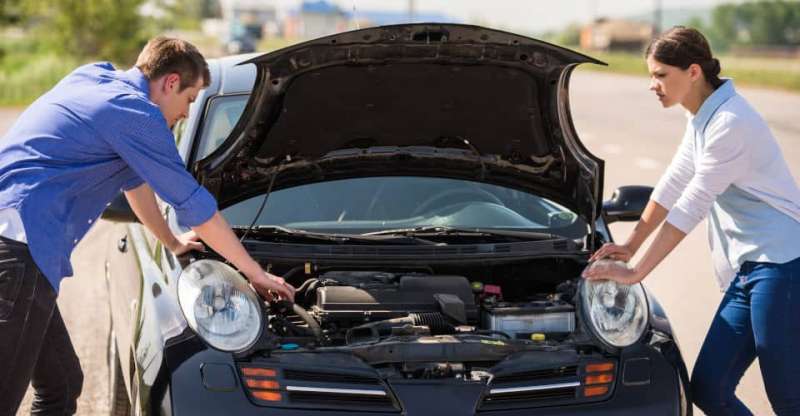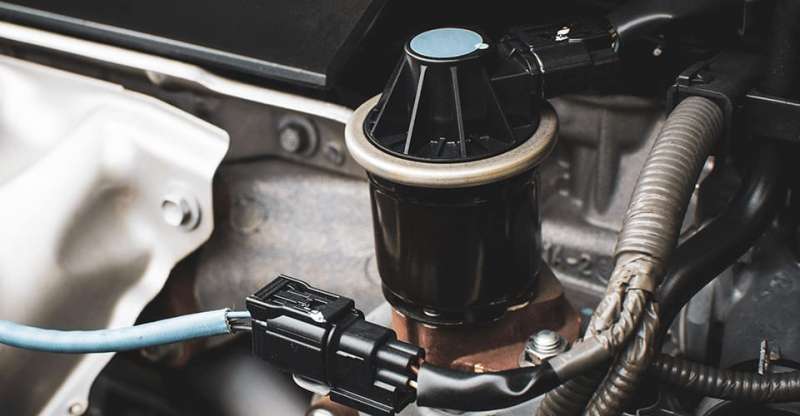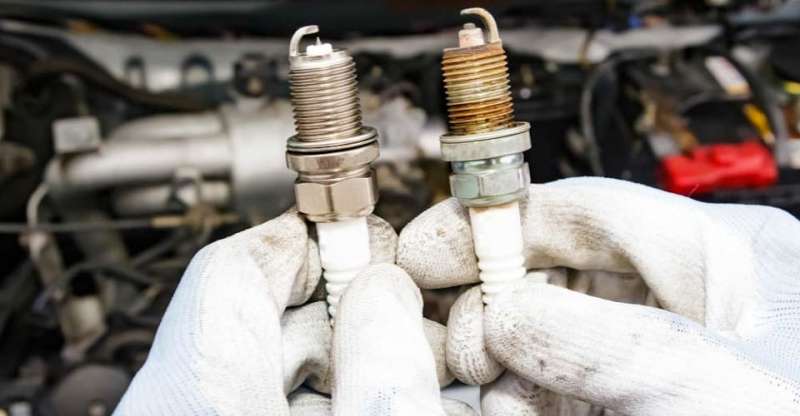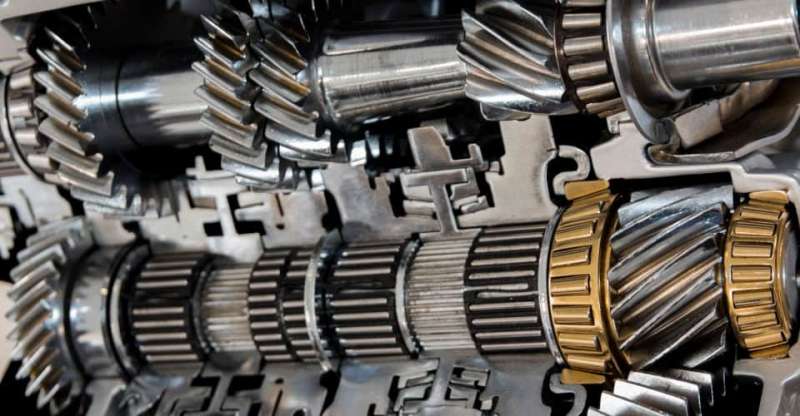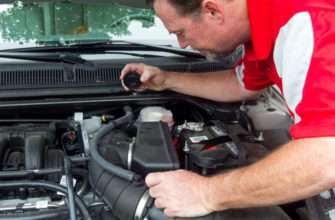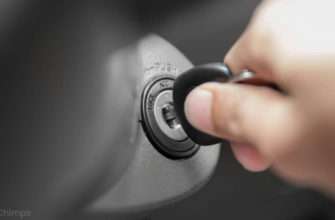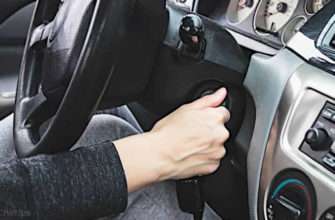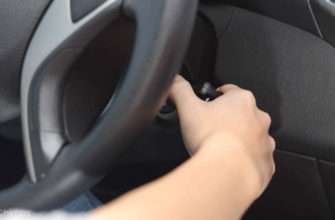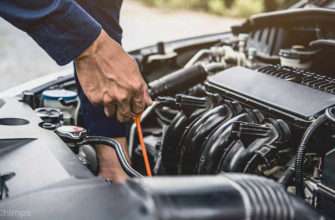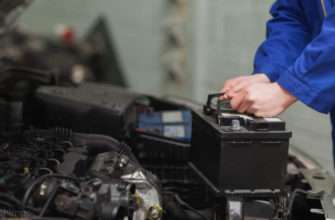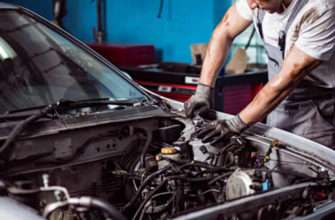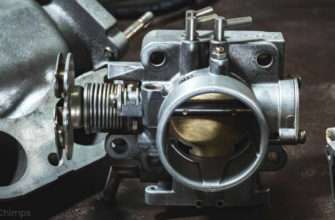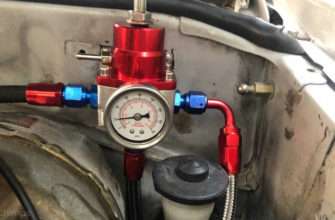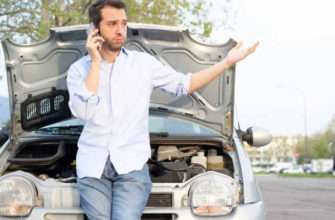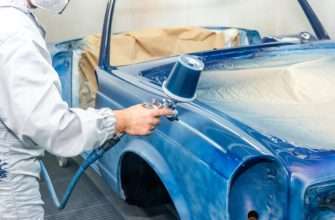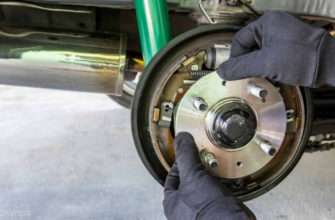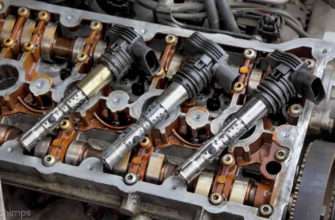Do you hate it when your car stalls when stopped? Here’s a super simple guide on what to do when a car stalls at idle and why it does it. There were no warning signs, no indicator lights, everything seemed fine, it just shut off. Why does a car die while idling in Park? When your engine dies while idling, there’s a good chance that it stalled. What causes a car to stall out? Usually, it means the engine isn’t receiving enough air, power, or fuel. There are 6 main reasons that might cause a car to stall while idling, these include the following:
- Faulty oxygen or mass airflow sensor
- Clogged EGR valve
- Bad spark plugs
- Idle air control actuator problem
- Fuel delivery system issues
- Malfunctioning transmission
If your SUV, car, or truck keeps stalling, it signals that there is a problem that needs taken care of. Thankfully, in this guide, we will explore each of these in detail so that you know how to proceed. Let’s jump into it!
6 Common Causes Of A Car Stalling At Idle
Faulty Oxygen or Mass Airflow Sensor
Your vehicle is filled with different sensors. Each relays specific information to the ECM (Engine Control Module). The ECM then takes this data and regulates how the engine operates to ensure it’s running optimally.
Two of these sensors play a significant role in why a car engine stops while idling. The first is the oxygen sensor, which is located in the exhaust manifold. The second is the mass airflow sensor, which sits to the left of your engine inside the intake air duct.
The former reads the amount of air leaving your engine, and the latter measures the amount entering. The ECM uses this data to either raise or lower how much air it sends to the combustion chambers.
If either of these sensors is relaying incorrect information. Then your engine might not receive enough air, which it needs to power itself. When there’s a lack of air, it leads to a lack of power, which can cause your car to stall while idling. How much does it cost to replace an oxygen or mass airflow sensor at a shop? An oxygen sensor will run about $200, and a mass airflow sensor, about $300.
Clogged EGR Valve
If you didn’t know, EGR stands for Exhaust Gas Recirculation. As its name suggests, its purpose is to recirculate a small amount of exhaust back into the combustion chambers. It does this to decrease the temperature inside.
This works because exhaust gas is mostly carbon dioxide (C02), which is an odorless, colorless gas that doesn’t burn. Since it doesn’t burn like oxygen, it effectively lowers the temperature inside the combustion chambers.
When the EGR valve gets clogged, it may get stuck open or closed, meaning exhaust gas will continue to flow or not flow at all. When this happens, it affects the air/fuel ratios inside the combustion chambers, which can lead to a loss of power. Not enough power, and you’ll have stalling problems while idling.
Diagnosing a clogged EGR valve, though, is a bit harder. Because a lot of the symptoms are similar to those caused by a faulty fuel pump, clogged fuel filter, or bad spark plugs. Thankfully, if it does end up being a clogged EGR valve, rather than replacing it for $400-$500, you can simply clean it out yourself at home.
New Spark Plugs Needed
Spark plugs are in charge of igniting the air/fuel mixture inside the combustion chamber. As you might expect, if they’re old and worn, they’re less effective at doing their job. This translates to less power for your engine, which can lead to your car stalling at idle. There are 5 types of spark plugs currently on the market. These consist of the following:
- Copper
- Iridium
- Single Platinum
- Double Platinum
- Silver
While copper costs the least, they only last for between 10,000-20,000 miles. Iridium, silver, and double and single platinum all last for around 100,000 miles, but cost more.
Defective Idle Air Control Actuator
The purpose of the idle air control actuator is to keep the RPMs in an optimal range while the engine is idling. It does this based on input received by the ECM, which it gets from things like your mass airflow, oxygen, and fuel sensors.
If there’s an issue with the idle air control actuator, the rotational speed of your engine might fall too low. As you might have guessed, this can cause your engine to stall while idling. The cost to replace this part varies greatly. It ranges from just over $100 to as much as $500, including both parts and labor.
Fuel Delivery System Issues
As we mentioned earlier, there are usually three main elements that lead to a car stalling out while idling. One of these is a lack of fuel, meaning if there’s a problem in your fuel delivery system, it can result in your car dying.
Any component of the fuel delivery system can cause this. Take the fuel pump, for instance, which is in charge of delivering fuel to your engine from the gas tank. There’s also the fuel filter, which screens out harmful debris before it reaches your engine. If it becomes clogged, not enough fuel will make it to the combustion chamber. If you’re lucky, it’s just the fuel filter, which typically costs between $50-$150 to replace. Most last for about 2-years, so if you’re long past this, it’s likely the issue.
Malfunctioning Transmission
Just mentioning a transmission problem is likely to send chills down the spine of any car owner. Why? Because they’re very costly to work on. As far as engine stalling problems, we’re specifically talking about the torque converter. Which is basically the automatic version of a clutch.
Its purpose is to deliver power from the engine to the rest of the drivetrain. If it’s worn or damaged, it’s unable to do this effectively, which can cause your car to stall. Thankfully, it may just be the solenoid, an electromagnet part that measures and regulates fluid pressure. If this is found to be the issue, you’re only looking at a repair cost of around a few hundred dollars.
Don’t Remain Idle If Your Engine Stalls While Idling
Ignoring a car that keeps stalling will only lead to more severe issues. Rather than sitting around and hoping that it fixes itself, take action instead. That’s simply because when an engine dies at idle, something is wrong that needs your attention immediately.
